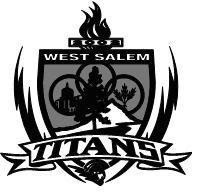After answering questions on the reading homework, "On Rainy River," we spent about 30 min discussing courage--our ideas, O'Brien's ideas, etc. Courage and cowardice are one of the major dichotomies of this book. I find the idea that an act can be simultaneously courageous and cowardly fascinating, but very possibly true.
Here are the questions to answer if you missed class:
Chapter 4 “On the Rainy River”
1. Why does O'Brien tell about his experience as a pig declotter? How does this information contribute to the story? Why go into such specific detail?
2. In "On The Rainy River," we learn the 21-year-old O'Brien's theory of courage:
"Courage, I seemed to think, comes to us in finite quantities, like an inheritance, and by being frugal and stashing it away and letting it earn interest, we steadily increase our moral capital in preparation for that day when the account must be drawn down. It was a comforting theory."
What does he mean? (Explain his view of courage in your own words.) Were you surprised when he described his entry into the Vietnam War as an act of cowardice? Do you agree that a person could enter a war as an act of cowardice?
3. Do you think that Tim's reaction to getting his draft notice was justified and was it the same type of reaction as most people had?
4. At the story's close, O'Brien almost jumps ship to Canada, but doesn't: "I did try. It just wasn't possible". What has O'Brien learned about himself, and how does he return home as a changed person?
5. Why, ultimately, does he go to war? Are there other reasons for going he doesn't list?
6. Was Tim decisions not to go to Canada to a smart choice? Explain.
HW for Monday: "How To Tell a True War Story" (chapter 7). We began this in class.
skip to main |
skip to sidebar

Books I have read recently:
- Espresso Shot by Cleo Coyle (series #7)
- Once Bitten Twice Shy by Jennifer Rardin (series #1)
- Letters to a young contrarian by Christopher Hitchens (nonfiction
- Tomato Girl by Jayne Pupek
- Greywalker by Kat Richardson (series #1)
- The Careful Use of Compliments by Alexander McCall Smith
- Living the 7 Habits by Stephen Covey (nonfiction)
- The Shack by William P. Young
- Lipstick Jihad by Azadeh Moaveni (nonfiction)
- Wicked by Gregory Maguire
- Inkdeath by Cornelia Funke (series, #3)
- Brisingr (Eragon Inheritance series #3)
Blog Archive
-
▼
2009
(43)
-
▼
February
(12)
- SNOW DAY! We had school, but many students were ab...
- We discussed "Night Life" and then segued into the...
- <?xml:namespace prefix = o />We read "Dentist," "S...
- NOTE: Due to scheduling sessions this week, this l...
- Tuesday 5th per. OR Thursday 7th per. (schedulin...
- President's Day--NO SCHOOL/No all-meet day this week.
- After answering questions on the reading homework,...
- Quiz over "Spin" and "Love." See Mrs. Evans for ma...
- Define and discuss the term "spin" and the concept...
- Check out the novel The Things They Carried by Tim...
- In class pre-reading exercise:What are the things ...
- Semester 2 Begins!
-
▼
February
(12)